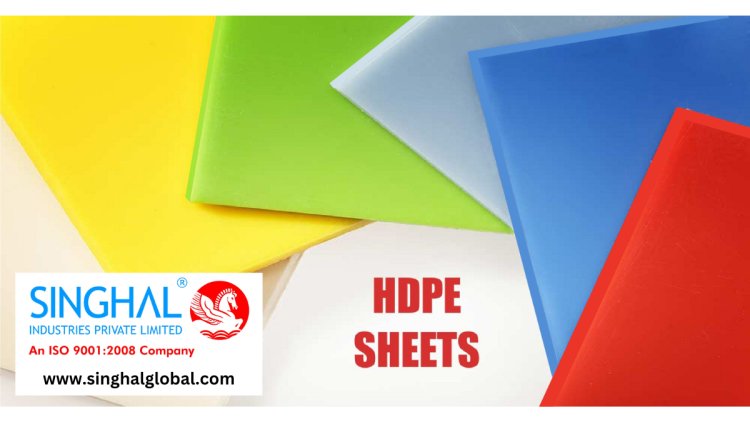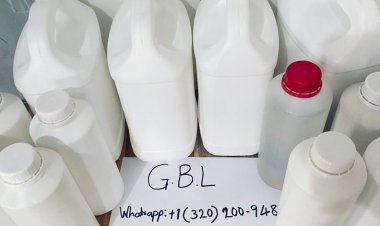Exploring HDPE Sheets: The Versatile High-Density Plastic Solution
In conclusion, HDPE sheets are a versatile and durable solution for a wide array of applications across various industries. Their unique properties, including chemical resistance, moisture imperviousness, and ease of fabrication, make them an ideal choice for both commercial and residential use. Whether for construction, packaging, agriculture, or industrial applications, high density polyethylene sheets provide reliability and cost-effectiveness. As industries continue to evolve, the role of HDPE sheets will likely expand, further solidifying their importance in modern material science and engineering.
Share this Post to earn Money ( Upto ₹100 per 1000 Views )

High-density polyethylene (HDPE) sheets have become an integral part of various industries due to their remarkable properties and versatility. Commonly referred to as polyethylene high density sheets, these materials offer a plethora of applications ranging from construction and manufacturing to packaging and agriculture. This article delves into the characteristics, advantages, and applications of high density plastic sheets, along with insights on their manufacturing and selection.
What are HDPE Sheets?
High density polyethylene sheets are made from a thermoplastic polymer that is known for its high strength-to-density ratio. These sheets are produced through a polymerization process that results in a dense structure, making them resistant to impacts, chemicals, and environmental factors.
The key features of HDPE sheets include:
-
Durability: HDPE sheets are incredibly tough and resistant to physical stress, which makes them suitable for various applications requiring robust materials.
-
Chemical Resistance: These sheets can withstand exposure to a wide range of chemicals, including acids and bases, making them ideal for use in chemical processing industries.
-
Moisture Resistance: High density plastic sheets are impervious to moisture, which helps in preventing degradation in wet conditions.
-
UV Resistance: Many HDPE sheets are treated to resist UV radiation, allowing them to maintain their structural integrity when exposed to sunlight for extended periods.
-
Ease of Fabrication: HDPE sheets can be easily cut, shaped, and welded, making them suitable for a variety of custom applications.
Advantages of Using HDPE Sheets
-
Cost-Effectiveness: While the initial investment in Polyethylene high density sheets may be slightly higher than other materials, their longevity and low maintenance needs make them a cost-effective option in the long run.
-
Lightweight: HDPE sheets are relatively lightweight compared to other plastics and metals, which simplifies handling and installation.
-
Environmental Resistance: The resilience of HDPE against corrosion and degradation due to chemicals or weather makes it a suitable choice for both indoor and outdoor applications.
-
Recyclability: HDPE is fully recyclable, making it an environmentally friendly option. Many manufacturers offer programs for recycling used sheets, further reducing environmental impact.
-
Non-Toxic: Unlike some plastics, HDPE is non-toxic and safe for use in food-related applications, including containers and packaging materials.
Applications of High Density Polyethylene Sheets
1. Construction and Building
In the construction industry, High density plastic sheets are widely used for various applications, including:
- Damp Proofing: HDPE sheets can be employed as damp-proof membranes in foundations, protecting structures from moisture penetration.
- Formwork: Used as a form material for pouring concrete, HDPE sheets provide a smooth surface that minimizes friction and enhances the finish of the concrete.
2. Packaging
The flexibility and strength of HDPE sheets make them suitable for packaging applications. They are used to produce:
- Containers: HDPE is commonly used for manufacturing bottles, crates, and containers due to its lightweight and durable nature.
- Bags: HDPE sheets can be extruded into thin films for making shopping bags and other types of flexible packaging.
3. Agriculture
In agriculture, high density polyethylene sheets are utilized for various purposes, such as:
- Greenhouse Covers: The UV-resistant properties of HDPE make it an excellent choice for greenhouse coverings, allowing for optimal light penetration while protecting plants from harsh weather.
- Mulch Films: HDPE sheets can be used as mulch films to control weeds, conserve soil moisture, and improve crop yield.
4. Industrial Applications
In industrial settings, HDPE sheets find applications in:
- Lining: HDPE sheets are used as liners in landfills and containment facilities due to their impermeability to liquids.
- Machinery Components: Their durability and low friction make HDPE sheets suitable for manufacturing components like wear strips and guides.
Manufacturing Process of HDPE Sheets
The manufacturing of high density polyethylene sheets typically involves the following steps:
-
Polymerization: The process begins with the polymerization of ethylene gas, which forms high-density polyethylene.
-
Extrusion: The polymer is then fed into an extruder, where it is melted and shaped into sheets through a die.
-
Cooling: The extruded sheets are cooled rapidly to solidify the material.
-
Cutting and Finishing: The sheets are cut to size and may undergo additional finishing processes to enhance their properties, such as UV stabilization or surface treatment.
FAQs about HDPE Sheets
1. What are HDPE sheets used for?
High density plastic sheets are used in a variety of applications, including construction (as damp-proof membranes and formwork), packaging (containers and bags), agriculture (greenhouse covers and mulch films), and industrial uses (lining and machinery components).
2. How do I choose the right thickness for HDPE sheets?
The thickness of polyethylene high density sheets will depend on the specific application. For structural applications, thicker sheets may be required for added strength, while thinner sheets can be used for packaging or other less demanding uses.
3. Are HDPE sheets safe for food contact?
Yes, high density polyethylene sheets are non-toxic and safe for use in food packaging and containers, making them a popular choice in the food industry.

















